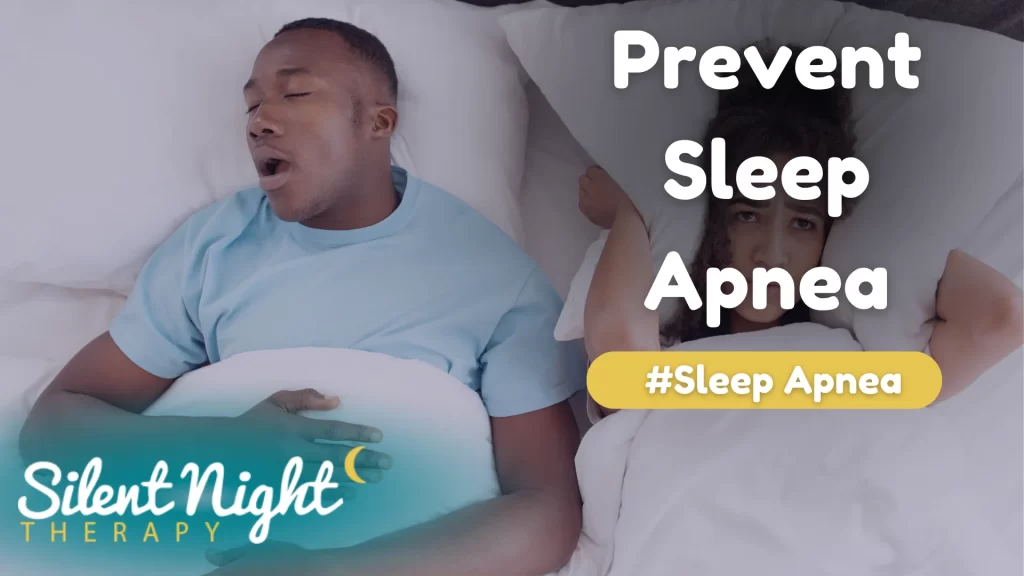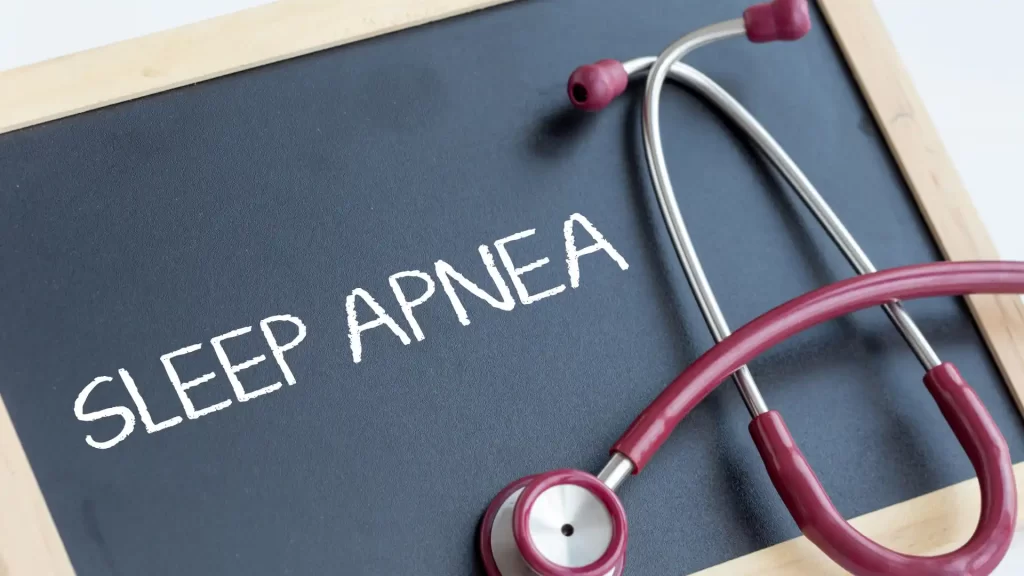Posted on Monday, January 1st, 2024 at 9:00 am
Obstructive sleep apnea (OSA) is a severe sleep disorder affecting 39 million U.S. adults. People with sleep apnea stop breathing briefly while they are asleep. These pauses happen hundreds of times a night, causing sleep disturbances and health issues. If you suffer from sleep apnea, there are measures you can take to improve your quality of sleep and well-being. Learn more about how to prevent sleep apnea using the methods discussed below.
Lifestyle Modifications for Sleep Apnea Prevention
For milder cases, these healthy lifestyle tips can help prevent sleep apnea:
- Losing Weight. Sleep apnea is most common in overweight or obese people. Additionally, obesity can increase fat deposits in the neck, which, in turn, raises the chances of your airway collapsing. Therefore, maintaining a healthy weight through a balanced diet and regular weight loss exercise can help decrease your likelihood of developing sleep apnea.
- Regular Exercise. Exercising three to five times weekly for at least 30 or even 20 minutes may reduce your chances of developing sleep apnea. Exercise close to or hours before bed also helps improve your sleep schedule, sleep quality, and overall health.
- Avoid alcohol. Reducing your alcohol intake, especially close to bedtime, can help reduce your risks of sleep apnea. Alcohol can make you sleep more heavily and worsen snoring if you do not wake up should your oxygen level drop. Also, alcohol can cause your tongue to relax more, which in turn can cause snoring.
- Quit smoking. Smoking may increase the severity of sleep apnea by causing upper airway inflammation and affecting both the upper airway muscular functions and arousal mechanisms. Consequently, untreated sleep apnea is linked to smoking addiction.
- Mouth exercises. Mouth exercises to strengthen your tongue and throat muscles (oropharyngeal muscle exercises) may help reduce sleep apnea symptoms.
Sleep Hygiene Practices
In addition to adopting healthy lifestyle habits, maintaining healthy and regular sleep practices can improve symptoms:
- Adjust your sleep position. Try sleeping on your side. Sleeping on your back can increase the risk of your airways narrowing. However, falling asleep on your side can help the airways stay open.
- Use a sleep positioner. If you wake up on your back in the middle of the night, try using a sleep positioner, such as a wedge-type pillow, behind you. This can help prevent you from tossing and turning onto your back.
- Stick to a sleep schedule. While this will not eliminate sleep apnea, practicing good sleep hygiene is beneficial to establishing a healthy sleep pattern.
- Humidify your bedroom. A humidifier can help reduce dry mouth symptoms of sleep apnea.
- Wear a nasal strip. Wearing a nasal strip or dilator at night can improve airflow and reduce snoring. Nasal strips and dilators are generally available over the counter at any drugstore.
Medical Interventions for Preventing Sleep Apnea
For moderate to severe cases, other treatments are available to prevent sleep apnea when lifestyle changes do not improve symptoms. Aside from sleeping pills, there are devices that help open airways. Furthermore, surgery might also be necessary. Hence, here are some medical treatments for preventing sleep apnea include:
- Continuous positive airway pressure (CPAP). The CPAP machine is a breathing device often used to treat sleep apnea. A CPAP involves wearing a mask over your nose or mouth while you sleep. Then, the mask sends constant air pressure to your upper airways from a small bedside pump. The air pressure helps keep your airways open and helps you breathe while sleeping.
- Oral Appliances. Sleep apnea mouth guards are form-fitting dental appliances that reposition your jaw, tongue, or soft palate to open the airway during sleep. Types of mouthguards include:
- Mandibular advancement devices (MADs). A dentist molds these mouthguards to fit your teeth and adjusts them to move your lower jaw forward. As a result, the jaw realignment helps eliminate snoring.
- Tongue retaining device or tongue stabilizing device (TRD or TSD). This mouth guard fits between your teeth and holds your tongue in place. The mouthpiece has a suction that prevents your tongue from falling back into your throat and blocking the airway.
There are various surgical options available for people with sleep apnea, including:
- Implants. A palatal implant is a minimally invasive surgery that stiffens the soft palate to reduce snoring.
- Laser-assisted uvulopalatoplasty. In laser-assisted uvulopalatoplasty, a surgeon removes tissues from your mouth and throat to enlarge your upper airway and increase airflow.
- Adenotonsillectomy. Surgery to remove your tonsils and adenoids can be effective in opening airways.
- Upper or lower jaw advancement. This surgery moves your upper and lower jaw forward to help increase the size of your airway.
Get Help from a Sleep Expert Today
Our team of West Babylon sleep apnea specialists at Silent Night Therapy has treated patients with sleep-related breathing disorders since 1983. If you suffer from sleep apnea, contact us online or call us at 631-983-2463 to schedule a consultation. We’ll help you get the rest you deserve.

